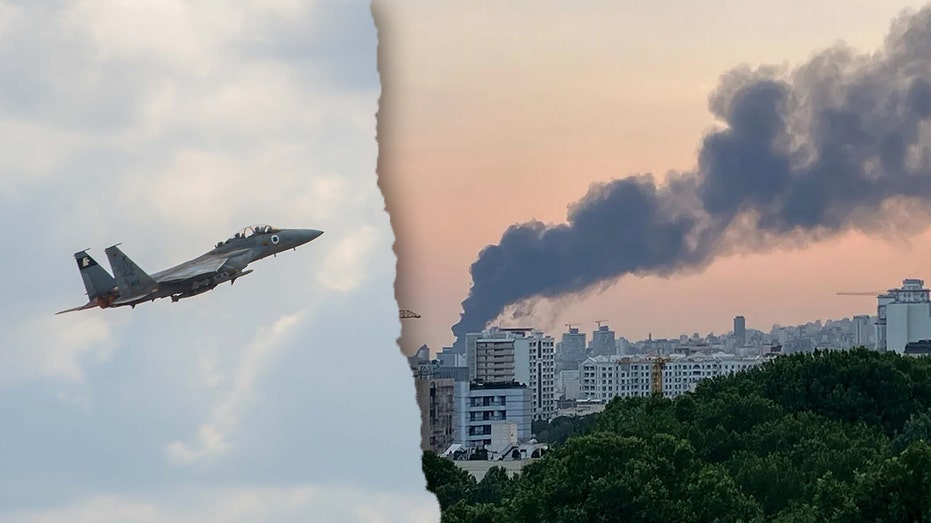The Israeli-Iranian war is not overit has just entered a dangerous pause
The headlines may proclaim a ceasefire, but let us be clear: the Israeli-Iranian war is far from over. What we are witnessing is not peaceit is a tactical intermission. The guns may be momentarily silent, but the war remains alive in motive, method, and mindset.Don't be fooled. Israel-Iran ceasefire represents tactical intermission, not lasting peacePresident DonaldTrumps June 23 announcement of a "complete and total ceasefire" between Israel and Iran brought a welcome pause to twelve days of deadly escalation. Yet his own remarks in the hours that followed, including en route to the NATO summit, betrayed the precarious nature of that agreementand the volatility of the players involved.ISRAEL BACKS AWAY FROM HEAVIER STRIKES ON IRAN, MAINTAINING CEASEFIRE AFTER TRUMP PRESSUREJust before boarding Air Force One, Trump issued a pointed public rebuke: "Calm down, Israel!" He warned Prime Minister Benajamin Netanyahu that any strike against Iran after the ceasefire's effective hour would constitute a violation. His words reflected not only diplomatic urgency but the fragility of the arrangement he had just announced.And yet, within hours, both Iran and Israel reportedly launched limited retaliatory actions. Trump, visibly frustrated, criticized both sides for breaking faith: "They dont know what thef*** theyre doing." He added: "I gotta get Israel to calm down now," underscoring the degree to which U.S. pressurenot mutual trustwas the linchpin of the ceasefires early survival.Therein lies the truth: the war has not ended. It has simply shifted forms.There is no treaty, no verification regime, and no mutual recognition of legitimacy between the two states. Iran continues to deny Israels right to exist, and Israel views Irans nuclear programand its regional proxy networkas existential threats. A formal cessation of hostilities requires more than silence; it requires resolution. We are nowhere near that.CEASEFIRE: CAN A PAUSE IN FIGHTING LEAD TO LASTING PEACE WHERE CONFLICTS HAVE BECOME THE NORM?To understand why this war is not over, consider the strategic objectives of each side. Israels campaign was aimed at degrading Irans nuclear infrastructureparticularly the underground enrichment site at Fordow. While successful in the short term, it did not eliminate Irans scientific knowledge or ideological commitment to nuclear capability. Tehran still possesses the technical talent, the raw materials, andmost dangerouslythe motivation to rebuild and accelerate its weapons program.Irans retaliatory missile strikes on Israel and U.S. bases in Qatar and Iraqthough largely interceptedserved as symbolic warnings. More importantly, Tehran signaled that it retains the capacity to strike deep into the region. That message wasnt just for Tel Avivit was for Washington, Riyadh, and the world.TIMELINE: TRUMP'S ISRAEL-IRAN CEASEFIRE NEARLY COLLAPSES HOURS AFTER ANNOUNCEMENTBehind the scenes, the shadow war continues. Irans Islamic Revolutionary Guard Corps still arms Hezbollah in Lebanon, trains militias in Iraq and Syria, and directs proxy warfare through the Houthis in Yemen. Israeli airstrikes on Damascus and other locations in Syria persist, albeit in a lower-key fashion. Cyber operations, drone surveillance, and intelligence targeting remain on full alert. These are not post-war conditions. These are indicators of an unresolved and evolving conflict.Even the diplomacy surrounding the ceasefire reflects its fragility. The agreement was brokered through indirect channels, with no official joint communiqu, no UN endorsement, and no follow-on roadmap. Iran has not re-engaged with the International Atomic Energy Agency. Israel, understandably, maintains its right to strike again if necessary. The rhetoric has cooled, but the posture remains hardened.CLICK HERE FOR MORE FOX NEWS OPINIONAnd then there is the political reality. Leaders in both countries face domestic constituencies who are skeptical of compromise. Hardliners in Tehran see the ceasefire as a pause to reload, not a step toward reconciliation. In Jerusalem, the Israeli public broadly supports preemptive action against a nuclear-armed adversary. Neither side has the political incentivenor the strategic trustto walk away from confrontation.So, is the war over? Only if we define "war" in the narrowest kinetic terms. But if we understand war as a clash of wills, ideologies, and strategic aimsthen this war continues, just under a different banner.The international community must not confuse this quiet with peace. Rather, it must prepare for what comes next: a sustained period of covert confrontation, regional volatility, and the ever-present risk of open warfare returning with little warning. Diplomats must act urgently, not naively. Military leaders must remain on alert. And political leadersespecially in Washingtonmust resist the temptation to declare victory before the conflict is truly resolved.Trumps visible exasperation and his blunt warnings serve as a reminder: this ceasefire is no more secure than the tempers and tactics of the adversaries it binds. The Israeli-Iranian war is not over. It has simply entered its next, and perhaps most perilous, phase.CLICK HERE TO READ MORE FROM ROBERT MAGINNIS




